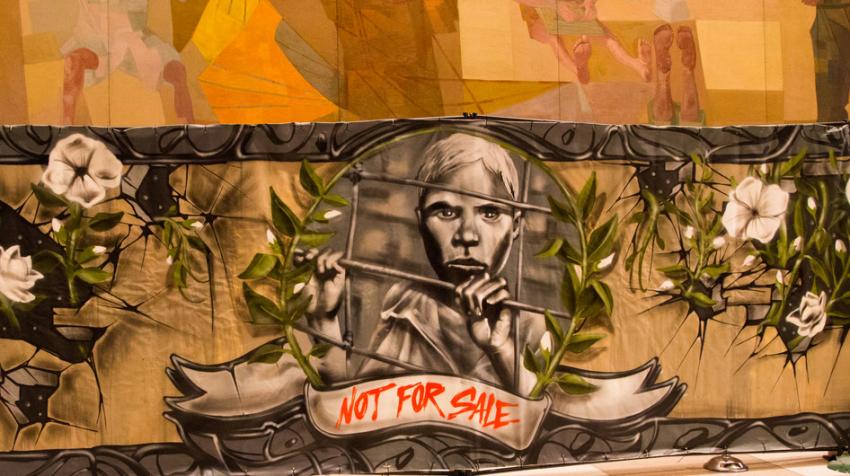
Fighting Modern Slavery through Awareness and Training
Article 4 of the Universal Declaration of Human Rights reads, “No one shall be held in slavery or servitude; slavery and the slave trade shall be prohibited in all their forms.” But according to the 2017 Global Estimates on Modern Slavery issued by the International Labour Organization, the International Organization for Migration and the Walk Free Foundation, “On any given day in 2016, there were likely to be more than 40 million men, women, and children who were being forced to work against their will under threat or who were living in a forced marriage that they had not agreed to.”
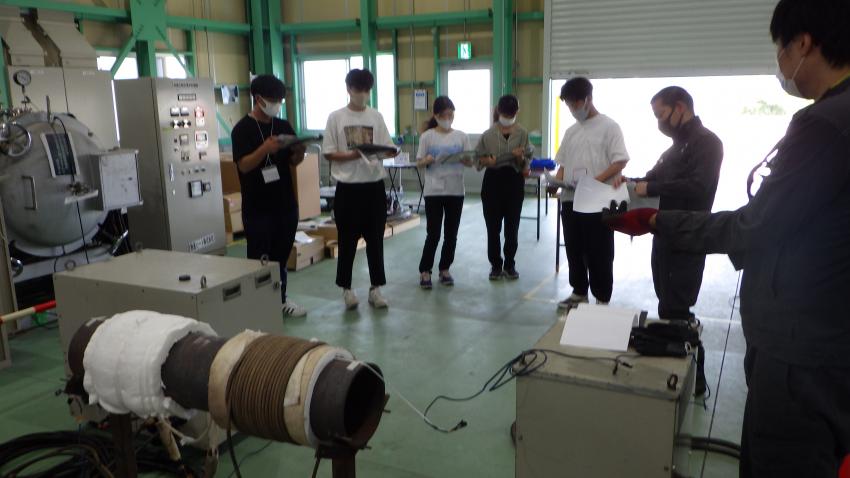
Training Students for the Green Jobs of the Future
The University of Kitakyushu (UKK), a UNAI member institution in Japan, is engaged in the development of environment-focused human resources under its “Cultivate the Environment” goal, one of three goals formulated by the university in 2016. According to the institution, solutions to environmental problems require an interdisciplinary approach, and it is essential for students to acquire knowledge and skills from a wide range of fields, as well as develop networks with people in different professions and specialties.
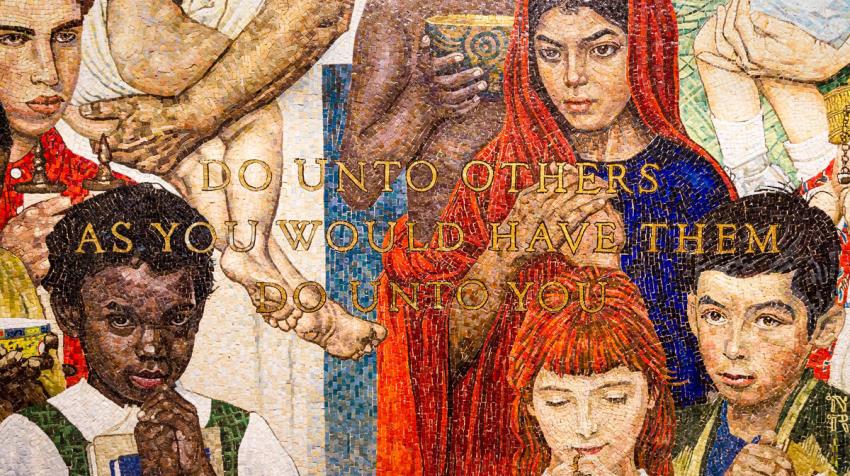
Sharing Personal Experiences to Combat Prejudice
The Center for Affirmative Action at the Federal University of Western Bahia (UFOB), a UNAI member institution in Brazil, hosted a series of webinars during the COVID-19 pandemic to address various forms of prejudice, such as racism, ableism, sexism, xenophobia, and other forms of exclusion. The series was held within the framework of the ‘Awakening Project’ (Projeto Despertar) and is related to Sustainable Development Goal 10: Reduced Inequalities.
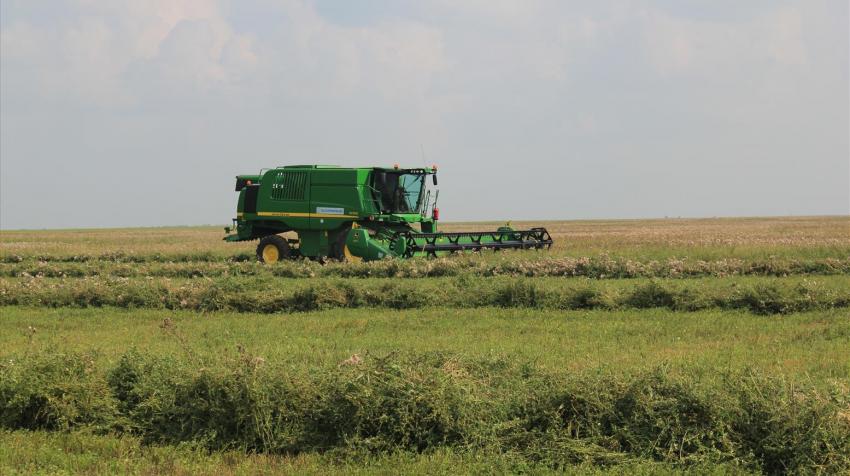
Agricultural Innovations for Food Security and Well-Being
Kazakh National Agrarian Research University, a UNAI member institution in Kazakhstan, recently hosted the 5th International Agrotechnological Summit, organized with the support of the United Nations Information Office (UNIC) in Kazakhstan. The focus of the event was the study of the recent trends and challenges in the field of sustainable agriculture and climate change around the topic of “Innovative Development of the Agro-industrial Complex in the Context of Economic Globalization.”
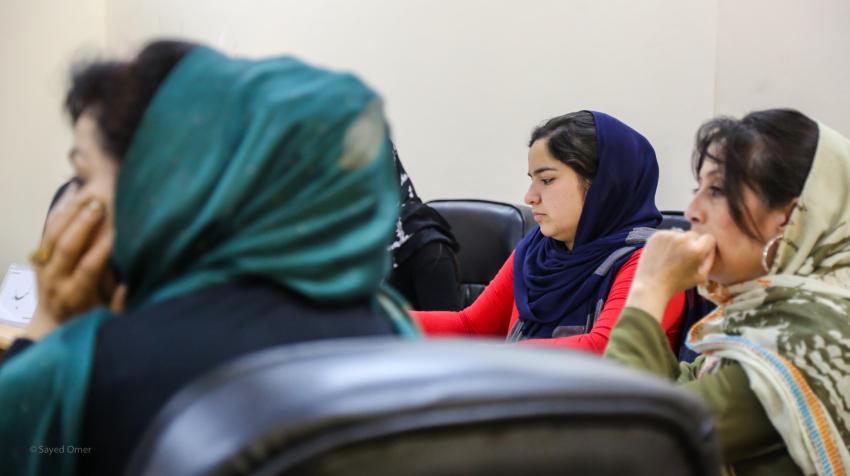
Advancing Women's Higher Education in Afghanistan
During the COVID-19 pandemic, universities have sought to keep students engaged remotely and Lynn University, a UNAI member institution in the United States, has used its Social Impact Lab to empower students to continue contributing to their communities while studying away from campus.
Partnering with Women Forward International (WFI) and through its University Client-based Research and Implementation Lynn University became involved in a project with the Afghan Institute for Learning (AIL) to design a women’s only university curriculum in Afghanistan.
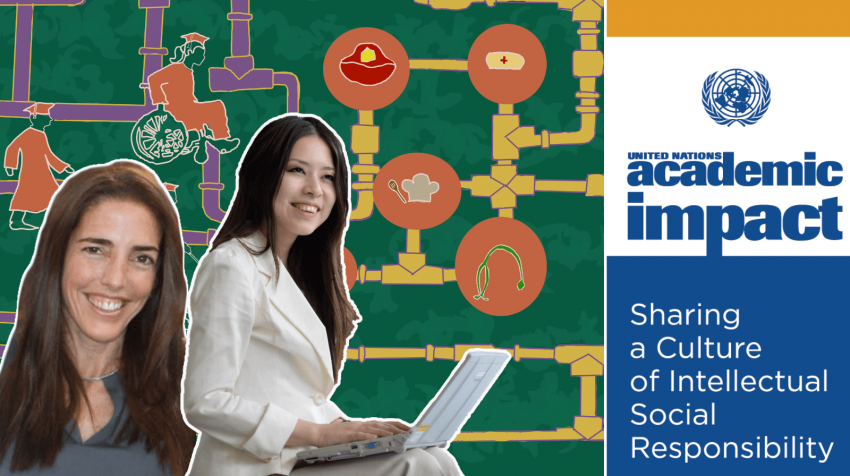
Disability and Higher Education: Workforce Preparedness for Students with Disabilities
According to the United Nations Development Programme, the global literacy rate for adults with disabilities is as low as 3 per cent, and only 1 per cent for women with disabilities. The 1 billion people with disabilities are the world’s largest minority, accounting for about 15 per cent of the global population. Therefore, it is imperative that they are fully included in society, starting with having equal access to quality education.
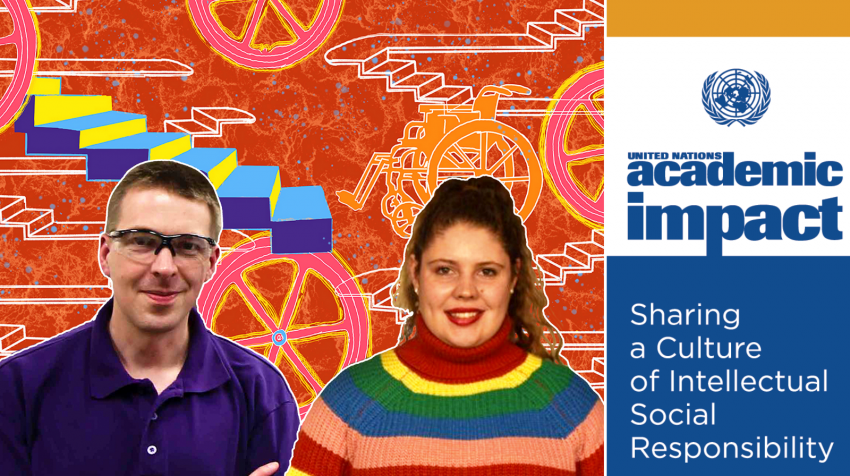
Disability and Higher Education: Better Architectural Choices for Inclusive Campuses
According to the United Nations Development Programme, the global literacy rate for adults with disabilities is as low as 3 per cent, and only 1 per cent for women with disabilities. The 1 billion people with disabilities are the world’s largest minority, accounting for about 15 percent of the global population. Therefore, it is imperative that they are fully included in society, including having equal access to quality education.
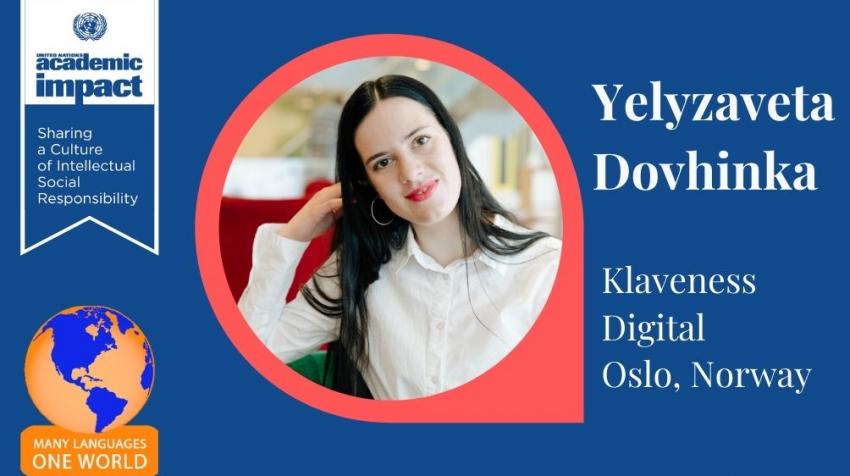
From Many Languages One World to Data Analyst: Yelyzaveta Dovhinka
The Many Languages, One World (MLOW) essay contest, co-hosted by ELS Educational Services and United Nations Academic Impact (UNAI) from 2014-2017, challenged university students worldwide to write an essay examining global citizenship, cultural understanding and the role of multilingualism in fostering both. The essay had to be written in one of the six official languages of the United Nations (Arabic, Chinese, English, French, Russian or Spanish), but not in the student’s first language or primary language of instruction. Winners of the contest were invited to United Nations Headquarters for the Global Youth Forum, where they created and presented action plans for the UN’s Sustainable Development Agenda.
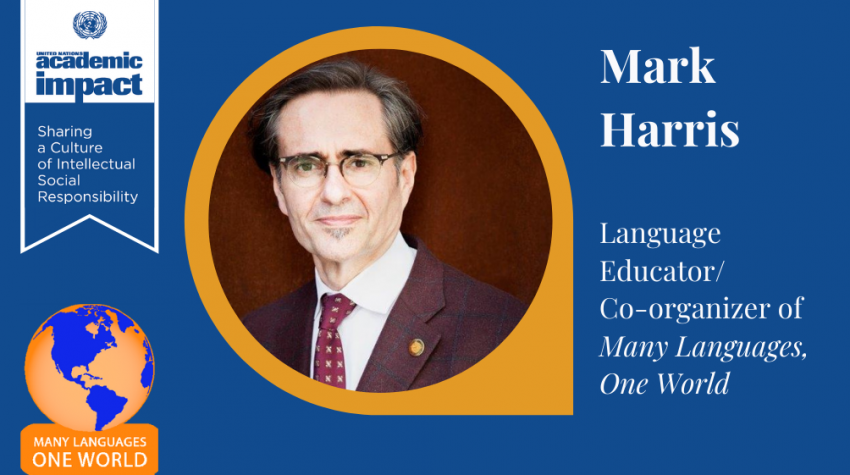
From Many Languages One World to Global Learning Network: Mark Harris
The Many Languages, One World (MLOW) essay contest, co-hosted by ELS Educational Services and United Nations Academic Impact (UNAI) from 2014-2017, challenged university students worldwide to write an essay examining global citizenship, cultural understanding and the role of multilingualism in fostering both. The essay had to be written in one of the six official languages of the United Nations (Arabic, Chinese, English, French, Russian or Spanish), but not in the student’s first language or primary language of instruction.
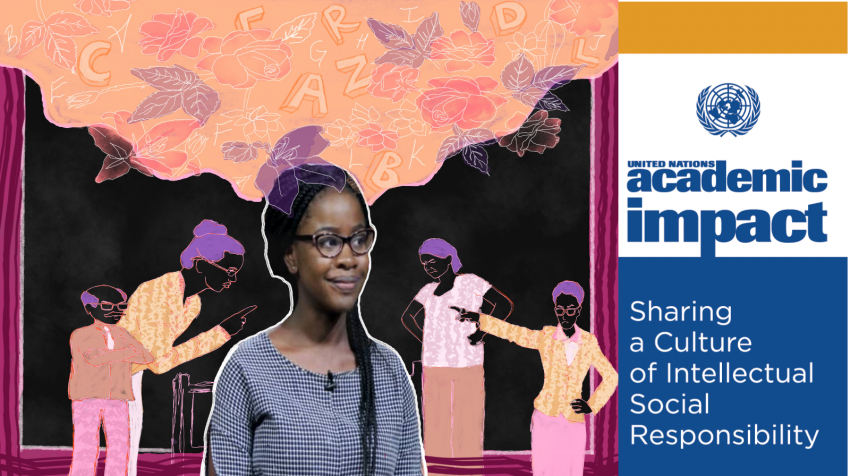
Disability and Higher Education: “But You Don’t Look Disabled": Legitimizing Invisible Disabilities
According to the United Nations Development Programme, the global literacy rate for adults with disabilities is as low as 3 per cent, and only 1 per cent for women with disabilities. The 1 billion people with disabilities are the world’s largest minority, accounting for about 15 percent of the global population. Therefore, it is imperative that they are fully included in society, starting with having equal access to quality education.
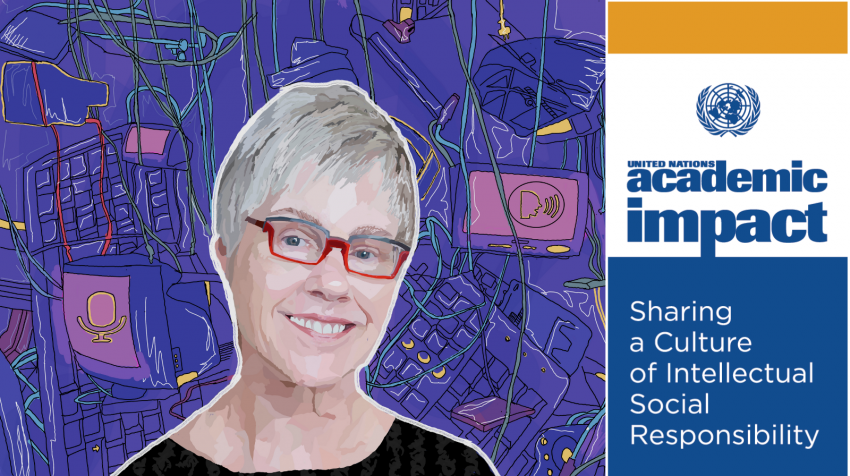
Disability and Higher Education: Inclusivity in an Increasingly Technologically Inclined Academic World
According to the United Nations Development Programme, the global literacy rate for adults with disabilities is as low as 3 per cent, and only 1 per cent for women with disabilities. The 1 billion people with disabilities are the world’s largest minority, accounting for about 15 percent of the global population. Therefore, it is imperative that they are fully included in society, starting with having equal access to quality education.

What Combating COVID-19 Can Teach Us About Tackling The Climate Crisis
The COVID-19 pandemic can be seen as a “stress test” for global society, with far reaching impacts across education, economic, health, agricultural, transportation and other sectors. Experts from the University of Zurich (Switzerland), a UNAI member institution serving as the SDG Hub for Goal 13: Climate Action, have studied these impacts from a sustainability perspective to determine what lessons we can learn from the pandemic and how they can be applied when dealing with climate change.
Jan R. Baiker, Nadia Castro, Veruska Muccione, Christian Huggel, Simon Allen and Fabian Drenkhan, from the Research Group on Environment and Climate in the Department of Geography, summarized the effects of the pandemic using the three pillars of sustainability: environmental, social and economic.
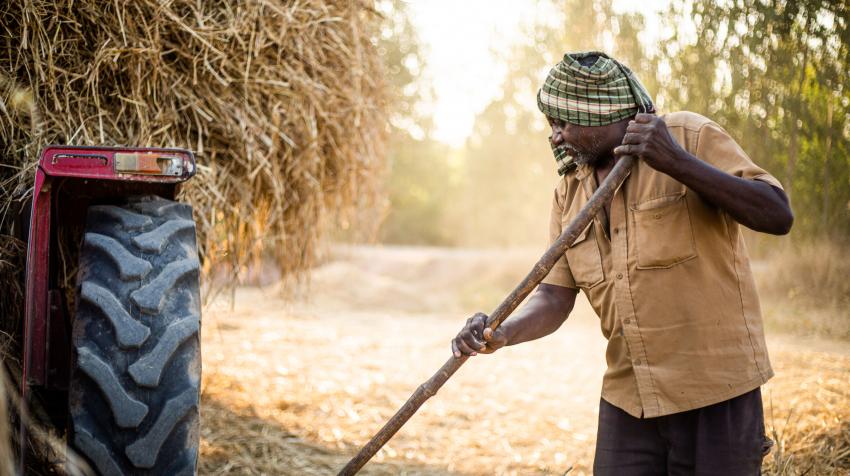
A Pandemic and Changing Demographics: Supporting Farmers in India
Amidst the measures imposed due to the COVID-19 pandemic, a group of scholars from Kristu Jayanti College (India), a UNAI member institution also serving as the Hub for Goal 1: No Poverty, visited small-scale farmers in the state of Karnataka to analyze the impact the pandemic is having on their livelihoods and other challenges faced in this area.
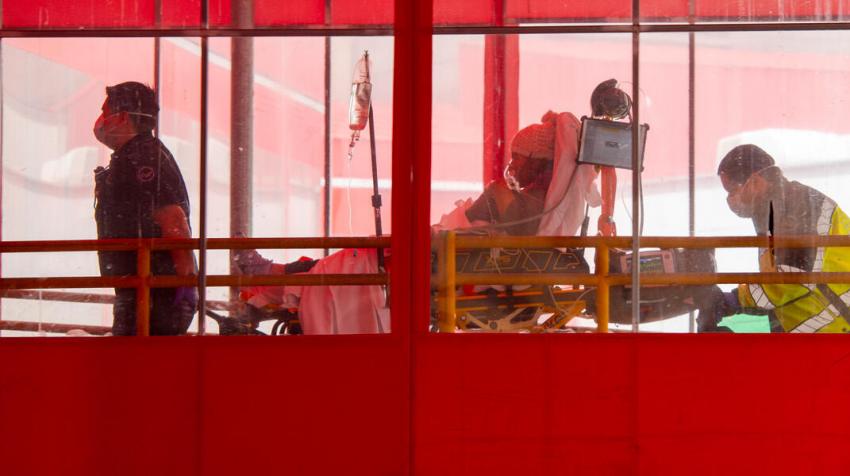
Rising to the Challenge: Medical School Alumni Respond to COVID-19
As the COVID-19 pandemic continues to surge worldwide, citizens are looking for different ways to cope with fear and uncertainty, protect their loved ones, and forge ahead while frontline healthcare workers are boldly risking their own health and safety to help care for others.
American University of Antigua College of Medicine (AUA), a UNAI member institution in Antigua and Barbuda, has many alumni serving in healthcare fields. The university is committed to supporting underserved communities and addressing the impending physician shortage with an emphasis on primary care and training the next generation of healthcare professionals to respond to global healthcare needs.
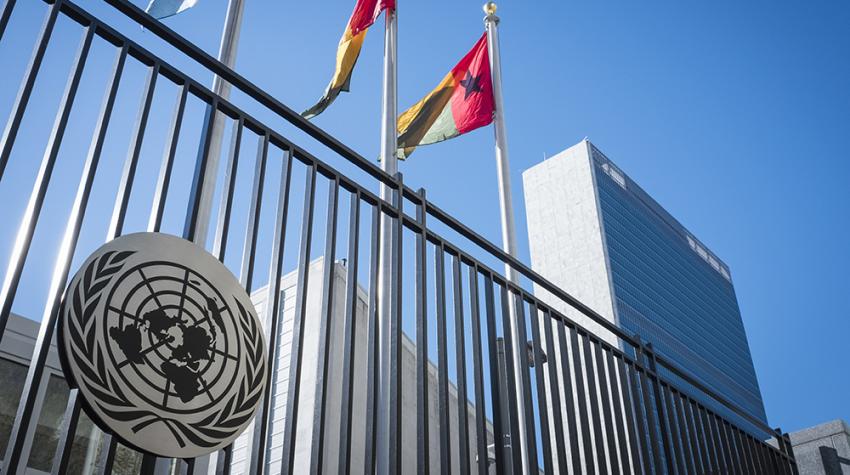
UN75: Shaping Our Future Together
2020 marks the 75th Anniversary of the founding of the United Nations. To commemorate this milestone, United Nations Academic Impact has asked academics, educators and leading figures in the fields of science, technology and innovation to share their views on the multilateral experiment born of war to foster peace, and what they see as the role of the organization in the 21st Century and beyond.
